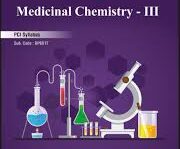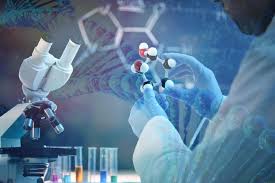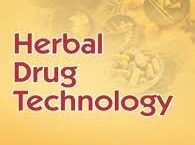B. Pharmacy 6th Semester Handwritten Notes
PHARMACOLOGY – 3

What is Pharmacology 3:
Pharmacology 3 is an advanced pharmacy course that delves into the specific use of drugs to treat various diseases. It covers medications for the respiratory system, gastrointestinal tract, immune system, and infections. Additionally, it explores the principles of toxicology and how drug timing impacts effectiveness.
Why is it important:
This course is essential for pharmacists to understand the logic behind drug choices, anticipate side effects, and promote safe and effective medication practices.
MEDICINAL CHEMISTRY – 3

What is Medicinal Chemistry 3:
Unlike pharmacology, which focuses on how drugs work, Medicinal Chemistry III teaches the design and modification of medications. Key topics include:
Drug Design: Creating new drugs using disease knowledge, chemical structure analysis (QSAR), prodrugs, and fast screening techniques.
Specific Drug Classes: Studying anticancer, blood pressure, diuretic, and antidiabetic drugs in depth.
Advanced Concepts: The role of 3D molecular shape, drug metabolism, and overcoming drug resistance.
Why it Matters:
Medicinal Chemistry III helps pharmacists understand the science behind drug creation. This leads to better understanding of drug interactions, the potential to predict drug properties, and a role in designing new treatments.
PHARMACEUTICAL BIOTECHNOLOGY

What is Pharmaceutical Biotechnology:
Pharmaceutical biotechnology uses living organisms and biological processes to create innovative medications. It combines biology, biotechnology techniques, and pharmaceutical knowledge to develop groundbreaking treatments.
Key Products:
Recombinant proteins: Genetically engineered proteins like insulin and growth hormones.
Monoclonal antibodies: Lab-made antibodies targeting specific disease agents.
Gene therapies: Using genetic material to treat diseases at their source.
Vaccines: Preparing the immune system to fight diseases.
Tissue engineering: Growing tissues and organs for medical purposes.
Why it Matters:
New treatments: Tackles previously untreatable or difficult-to-treat diseases.
Targeted therapies: Biotech drugs often have fewer side effects due to their precise action.
Potential for cures: Offers hope for finding cures rather than just managing symptoms.
HERBAL DRUG TECHNOLOGY

What is Herbal Drug Technology:
Herbal drug technology is the field that transforms medicinal plants into safe, effective, and scientifically-backed treatments. It involves careful sourcing of plants, standardized processing, research to prove their effects, and integration with traditional medicine knowledge.
Why it Matters:
Ensures quality: Helps guarantee consistent quality and safety in herbal medicines.
Discovers new treatments: Provides a framework to investigate the potential of plants for new drug development.
Modernizes tradition: Helps validate and integrate traditional herbal knowledge using scientific methods.
PHARMACEUTICAL QUALITY ASSURANCE

What is Pharmaceutical Quality Assurance:
Pharmaceutical QA is a system that ensures medications consistently meet high quality standards throughout their entire lifecycle. It involves following strict guidelines, rigorous testing, detailed record-keeping, and regular audits.
Why it’s Crucial:
Patient safety: Protects patients by guaranteeing that medications are safe, effective, and reliable.
Regulatory compliance: Helps companies meet legal requirements and avoid penalties.
Public trust: Maintains confidence in the quality of pharmaceutical products.
Cost-effective: Prevents costly recalls and damage to a company’s reputation.

Sir plz provide a biopharmacetics and pharmacokinetics notes sir please 🙏
Sir please provide a biopharmacetics and pharmacokinetics notes sir please
Your style is so unique compared to many other people. Thank you for publishing when you have the opportunity,Guess I will just make this bookmarked.2